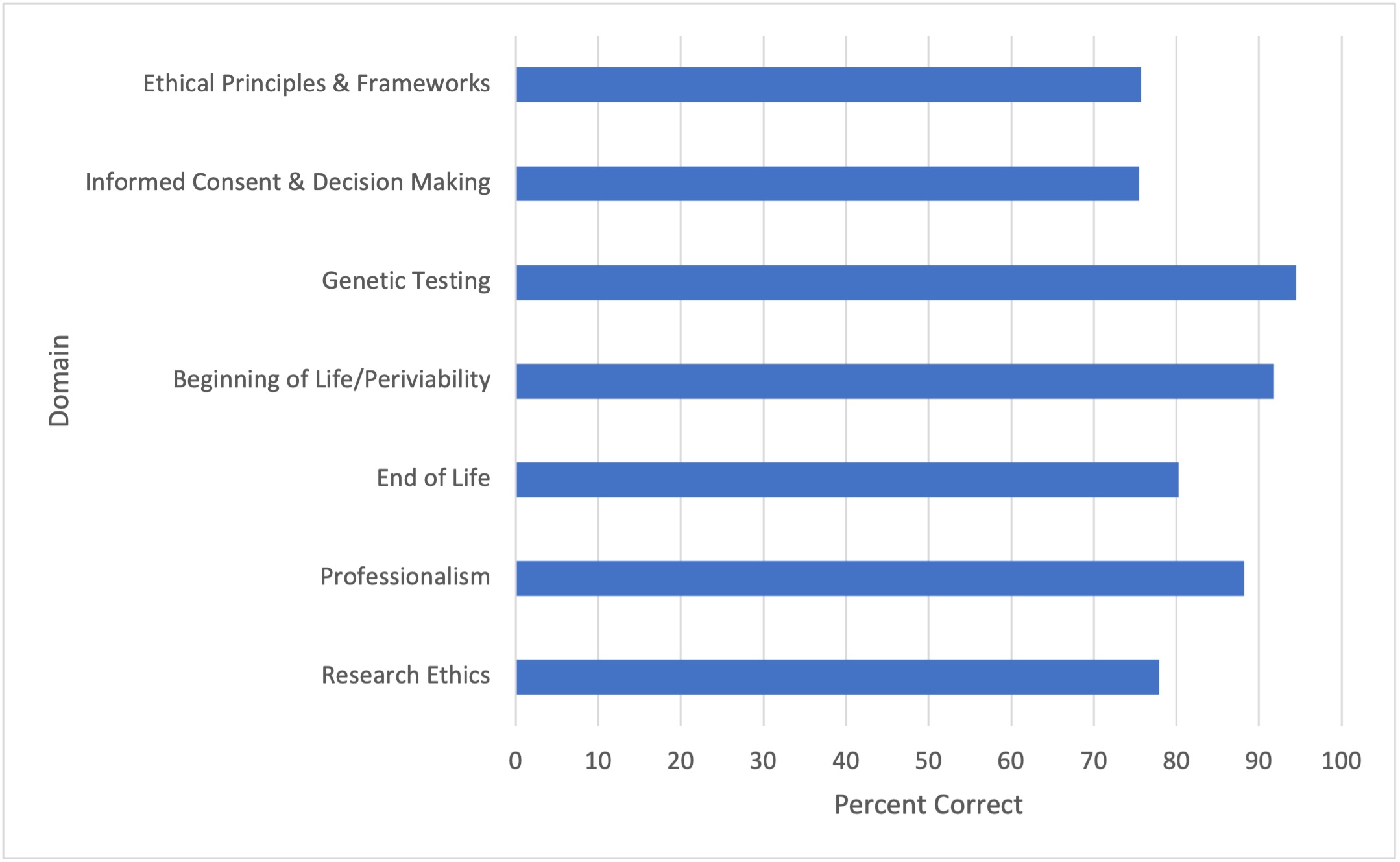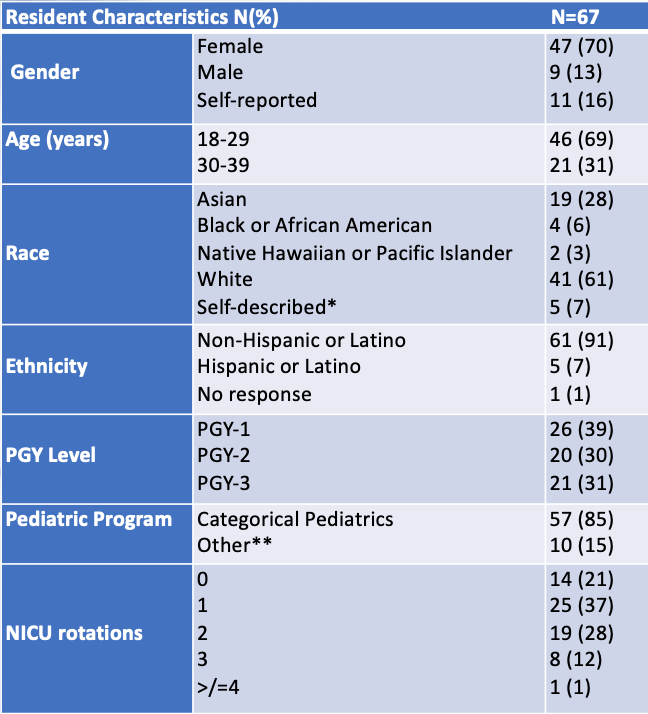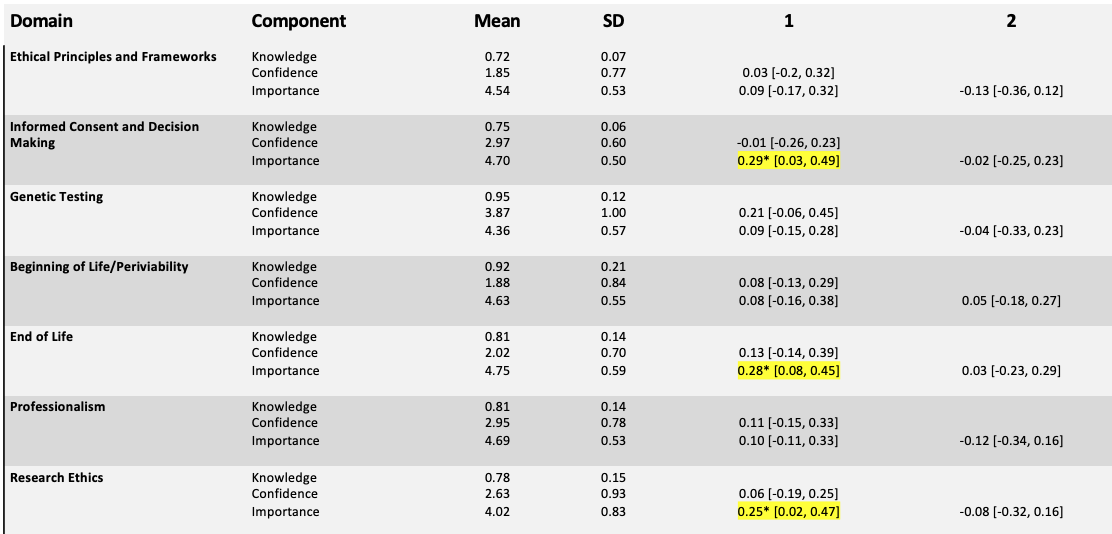Medical Education
Session: Medical Education 7
443 - Pediatric Residents’ Perceptions of Ethics Education in the Neonatal Intensive Care Unit: A Needs Assessment
Saturday, May 4, 2024
3:30 PM - 6:00 PM ET
Poster Number: 443
Publication Number: 443.1683
Publication Number: 443.1683
- AL
Allison N. J Lyle, MD, MA (she/her/hers)
Assistant Professor of Pediatrics
University of Louisville School of Medicine/Norton Children's Hospital
Sellersburg, Indiana, United States
Presenting Author(s)
Background: Residency training is a critical time for young physicians to develop skills and knowledge, including skills in addressing ethical concerns. Pediatric residents must complete rotations in the neonatal intensive care unit (NICU), where they may encounter ethically challenging situations. Limited data exist that investigate pediatric trainee-identified learning objectives for NICU ethics education.
Objective: To examine the neonatal ethics educational needs of pediatric residents and how they may vary by experience level by quantifying baseline ethics knowledge, confidence in addressing ethical dilemmas, and perceived importance of ethical domains
Design/Methods: We designed a survey that consisted of three tools evaluating different aspects within 7 ethical domains: 1) An existing and previously published ethics knowledge test, the Test of Ethics Knowledge-Neonatology (TEK-Neo) 2) An existing and previously published ethics confidence test, the Test of Confidence and Competence 3) Perceived importance of ethical domains. We planned to report descriptive data as well as assess correlation in participant responses within each domain across the 3 tools. We invited all pediatric trainees from a large, western US residency program to participate.
Results: The survey was sent to (n=132) potential respondents from September to October 2022. 67 (51%) completed the survey (Table 1). Residents performed well on the TEK-Neo (Figure 1), yet reported low confidence in addressing ethical challenges. Residents reported all domains were important to their NICU ethics education. Results from the Knowledge, Confidence and Importance sections were assessed for correlations. Neither Knowledge nor Importance correlated with Confidence. However, there was a correlation between Knowledge and Importance in only 3 domains: Informed Consent and Decision Making, End of Life, and Research Ethics. (Table 2).
Conclusion(s): Pediatric residents viewed ethics education as important to their training, and reported low satisfaction with current ethics curricula during residency, especially during NICU rotations. They encountered ethical concerns frequently during their NICU rotations and were knowledgeable in ethical domains but not confident in addressing those concerns. Our findings may suggest residents would benefit from a structured, standardized curriculum in ethics during NICU rotations. The results of our needs assessment has implications for the development of a targeted curriculum in neonatal ethics.



